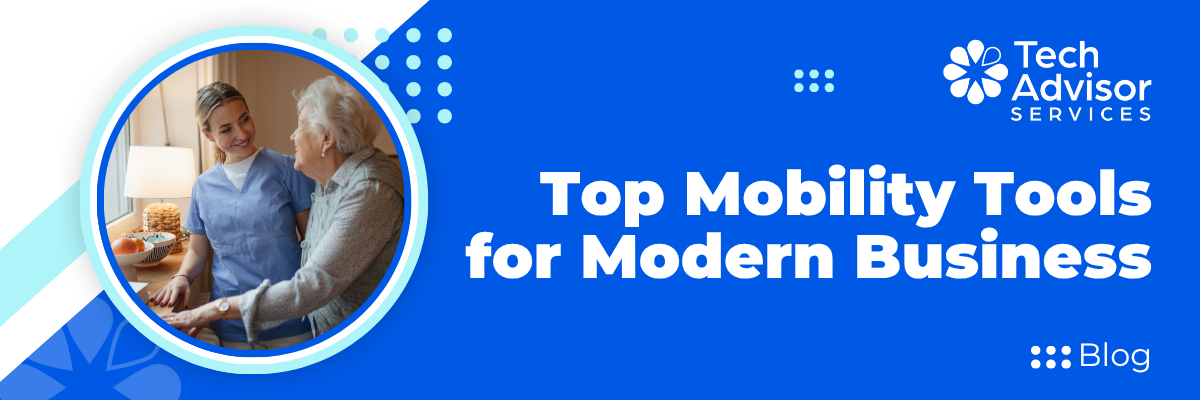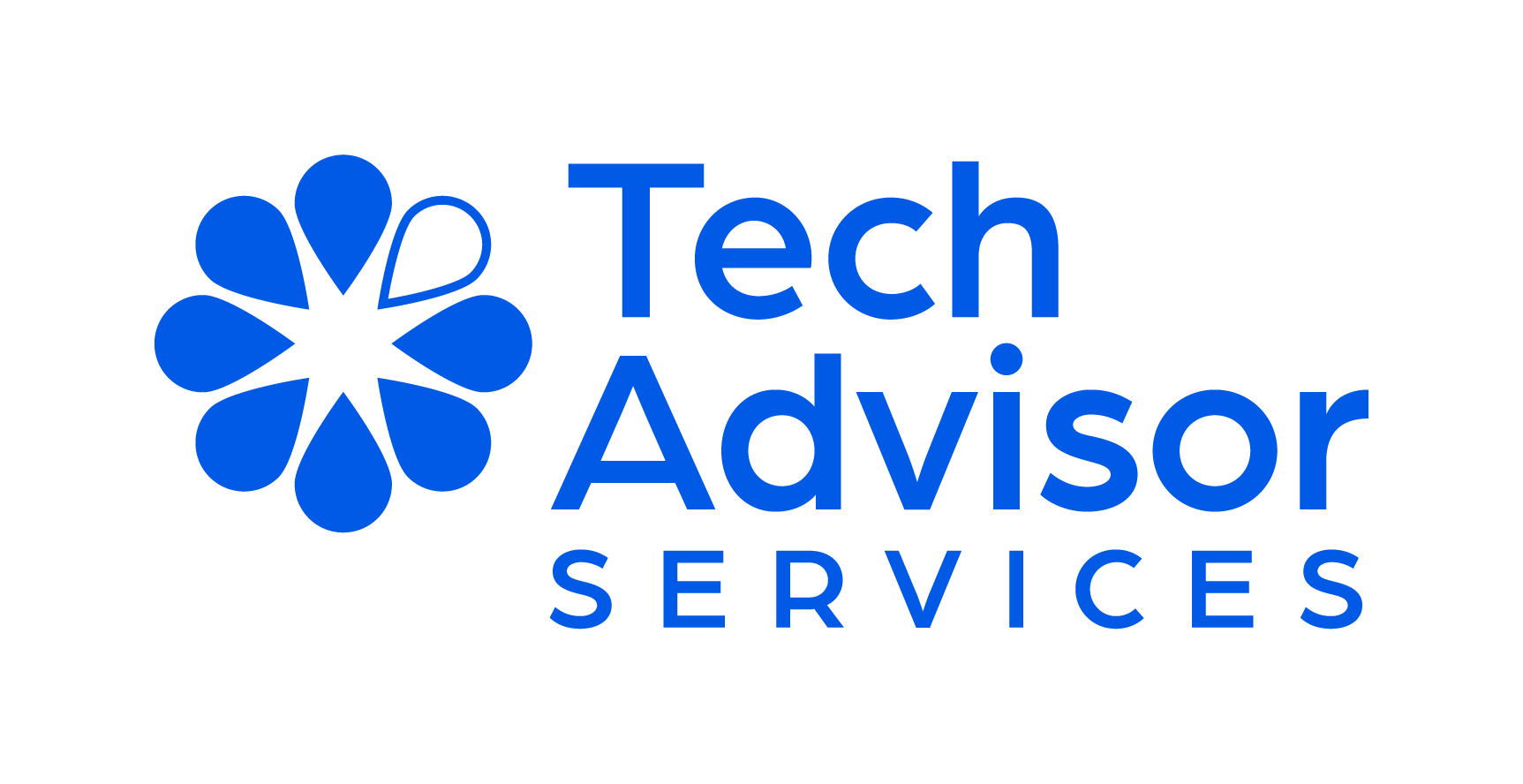New Title
Empowering a Mobile Workforce with Technology That Works Anywhere

Hybrid work isn’t a temporary phase—it’s the new normal. As businesses strive for agility, employee satisfaction, and cost control, enabling people to work seamlessly wherever they are has become essential. But a mobile workforce can’t thrive on laptops alone. It needs the right mix of hardware, software, and connectivity to stay productive and secure.
Let’s explore the top mobility tools every modern business should consider to empower teams in a hybrid world.
Why Mobility Tools Matter
Picture this:
- A salesperson wraps up a client lunch and instantly updates their CRM from their phone.
- A project manager joins a video call from a coworking space without worrying about spotty Wi-Fi.
- An IT consultant edits critical documents on a tablet while waiting for a flight.
This flexibility isn’t just convenient—it’s become a competitive advantage. A strong mobility strategy:
✅ Boosts employee productivity
✅ Enhances collaboration
✅ Reduces downtime
✅ Improves data security
✅ Supports business continuity during disruptions
Without the right tools, hybrid work quickly turns into frustration, bottlenecks, and security risks.
Core Mobility Tools for Modern Businesses
Let’s break down the most important mobility solutions worth your attention.
1. Lightweight Laptops and 2-in-1 Devices
Mobility starts with the device you carry. Bulky machines tether employees to desks. Today’s mobile workforce needs:
- Lightweight laptops – e.g. MacBook Air, Dell XPS, Lenovo ThinkPad Carbo
- 2-in-1 devices – e.g. Microsoft Surface Pro, HP Elite Dragonfly
These devices balance performance and portability, making them perfect for professionals who bounce between home, office, and travel. Many 2-in-1s also support digital pens for note-taking, sketching, or design tasks on the fly.
2. Smartphones as Business Hubs
Modern smartphones are powerful enough to run business apps, handle email, join video calls, and even edit documents. Must-have mobile capabilities include:
- Email and calendar integration
- Secure file access
- Business messaging apps (Slack, Teams)
- Mobile versions of office tools (Word, Excel, PowerPoint)
Especially for field teams, salespeople, and service professionals, a smartphone is often their primary workstation.
3. Mobile Hotspots & Business-Grade Connectivity
Hybrid work demands reliable internet everywhere. That’s where mobile hotspots and business-grade wireless plans become indispensable.
Hotspots:
- Provide secure connections when public Wi-Fi isn’t safe or available
- Support multiple devices at once
- Keep remote workers connected in areas with spotty broadband
Business-grade 5G or LTE services offer high-speed performance that’s often faster than traditional broadband. For professionals working in client locations, warehouses, or remote areas, it’s a game-changer.
4. Cloud Storage & File Sharing
A mobile workforce can’t function without cloud storage. Gone are the days of emailing attachments back and forth. Leading solutions include:
- Google Drive
- Microsoft OneDrive
- Dropbox
Benefits of cloud storage:
- Access files from any device
- Collaborate in real-time
- Simplify version control
- Enhance security with built-in encryption and permissions
For IT consultants managing client deliverables or documentation, cloud access ensures you’re never without critical files.
5. Collaboration and Project Management Tools
Distributed teams need collaboration tools that keep everyone aligned, regardless of location. Essential platforms include:
- Slack – real-time chat and integrations
- Microsoft Teams – chat, calls, and file collaboration
- Asana, Trello, or Monday.com – project and task tracking
- Notion – flexible workspace for notes, wikis, and projects
These apps reduce silos and keep work moving—even when people work across time zones.
6. Video Conferencing Platforms
Hybrid work lives on video calls. Reliable video conferencing is no longer optional—it’s vital. Popular tools:
- Zoom
- Microsoft Teams
- Webex
- Google Meet
Key features to look for:
- High-definition video and audio
- Screen sharing and co-editing
- Security controls for meeting access
- Mobile app support
For consultants, sales teams, or any client-facing role, professional-grade video communication is critical for maintaining trust and connection.
7. VPN Services for Secure Connectivity
Working from coffee shops or airports introduces serious security risks. A VPN (Virtual Private Network) is crucial for encrypting internet traffic and protecting sensitive data. Top VPN solutions offer:
- Strong encryption
- Easy deployment across multiple devices
- Minimal speed reduction
- Centralized management for IT teams
A solid VPN ensures client data, corporate IP, and internal systems remain safe—even on public Wi-Fi.
8. Password Managers
Mobile professionals juggle dozens of apps and portals. Writing passwords in notebooks or reusing the same one everywhere is a disaster waiting to happen. A password manager:
- Stores complex passwords securely
- Autofills login details across devices
- Helps enforce good security hygiene
Leading solutions include LastPass, 1Password, and Dashlane. For IT teams, enterprise versions support shared vaults and role-based permissions.
9. Multi-Factor Authentication (MFA)
Passwords alone can’t protect sensitive accounts. Multi-factor authentication adds a critical security layer. Popular MFA apps:
- Google Authenticator
- Microsoft Authenticator
- Duo Security
Even if a password is compromised, attackers can’t gain access without the additional verification step.
10. Portable Power Solutions
While we’re skipping comfort tools like stands or ergonomic mice, one essential physical asset remains: power.
Portable chargers and power banks keep laptops, phones, and hotspots running through long days of travel or meetings. For mobile workers, dead batteries mean lost productivity and missed deadlines.
The ROI of Investing in Mobility
Some businesses hesitate to invest in mobility tools, worried about upfront costs. Yet the return on investment is clear:
- Higher Productivity – Fewer disruptions and faster work completion
- Better Employee Experience – Flexible work improves retention and satisfaction
- Stronger Security – Tools protect data regardless of location
- Business Resilience – Work continues despite power outages, travel delays, or office closures
Consider it an insurance policy and a competitive edge rolled into one.
Key Takeaway
Empowering your workforce isn’t simply about letting employees “work from anywhere.” It’s about equipping them with the right tools so they can stay connected, productive, and secure—no matter where business takes them.
Whether you’re a growing consultancy, a mid-sized enterprise, or an agile startup, mobility solutions should be a core pillar of your IT strategy. The businesses that thrive in this hybrid era will be those that make mobility not just possible—but seamless.
Is your business equipped for true mobility? Let’s talk about building the right stack for your hybrid workforce.
